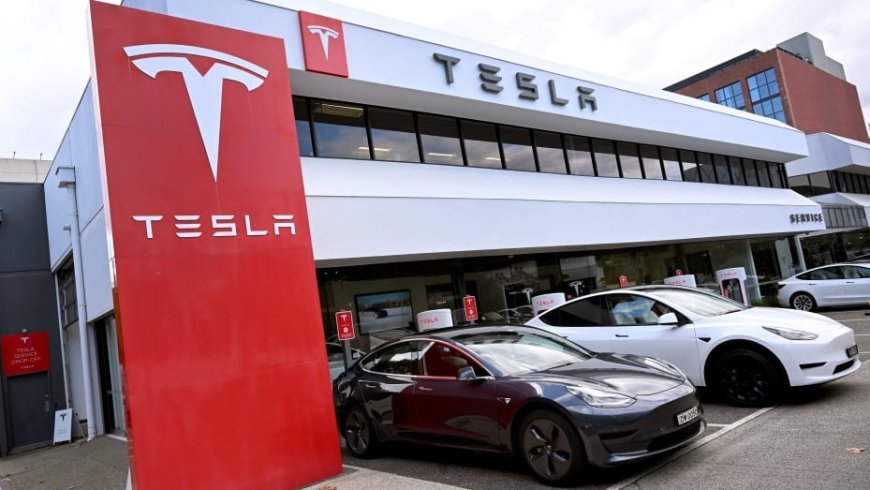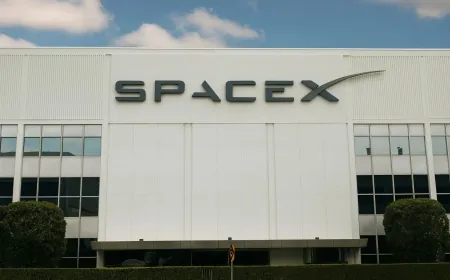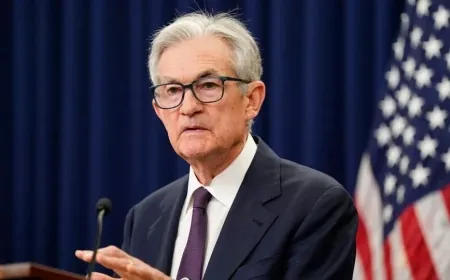Tesla Faces $94 Billion Market Cap Drop in Challenging Start to 2024
Tesla Market Value Drops by $94 Billion Amidst Challenges in the Electric Vehicle Industry

Tesla, the electric vehicle (EV) giant led by Elon Musk, is grappling with its toughest start to a new year, witnessing a significant market cap plunge of over $94 billion in the first two weeks of 2024. The Austin-based company, after a stellar 2023 where its shares more than doubled, is now facing a slew of challenges impacting its valuation.
The negative developments include a surprising reversal on EVs by major car rental player Hertz Global Holdings Inc., additional price reductions for Tesla's China-manufactured vehicles, and indications of escalating labor costs. These hurdles emerge amid a slowdown in EV demand, particularly in the United States.
Investors' primary worry centers around Tesla's stagnant growth, accentuated by aggressive price cuts in China. Analysts note a perceived "race to the bottom" in the EV industry due to intense competition in that market.
The market cap downturn for Tesla in the initial weeks of 2024 represents its most significant decline over a similar period since going public in 2010. The 12% drop in Tesla's stock since the start of January is the steepest in percentage terms since 2016.
The company's attempts to stimulate demand through price reductions have led to a gradual erosion of its once-substantial profit margin. Tesla's automotive gross margin, excluding regulatory credits, dropped to 16.3% in the third quarter from 27.9% a year earlier. Additionally, rising labor costs for production workers at Tesla's U.S. plants further contribute to the challenging financial landscape.
Tesla's troubles extend to logistical issues, with rerouted shipments meant for its Berlin plant due to Western military actions and security concerns in the Red Sea. The company is suspending most production at its Berlin plant from Jan. 29 to Feb. 11, according to insider information.
The company initially signaled a deceleration in EV demand during its October third-quarter earnings report, aligning with broader industry forecasts. Tesla's fourth-quarter delivery numbers, while surpassing analyst expectations, positioned the company behind China's BYD Co. in global electric-car sales.
This shift in fortune has been particularly jarring for Tesla investors after the company emerged as the eighth-best performer in the S&P 500 in the previous year. In contrast, it currently ranks as the eighth-worst performer in the early weeks of 2024.
Elon Musk, the CEO of Tesla and the world's richest person, has personally felt the impact, with his net worth contracting by $23 billion since the beginning of the year. Despite these challenges, Tesla remains a key player in the global shift from gas-powered to electric vehicles, holding a significant lead over potential rivals.
However, Tesla's past success and the high expectations it generated have made the company vulnerable to substantial market reactions. Some argue that Tesla's value lies in its future potential, especially in developing truly self-driving vehicles. Yet, skepticism persists as Tesla has yet to deliver on its promises of fully autonomous driving and AI capabilities, both factors embedded in its valuation.
In essence, Tesla faces a crucial juncture as it navigates challenges, balancing its past achievements against the need for sustained innovation and market leadership in an increasingly competitive and dynamic electric vehicle landscape.
Also Read: Tesla Recalls Over 120,000 Vehicles in the U.S. Due to Safety Concerns

































































